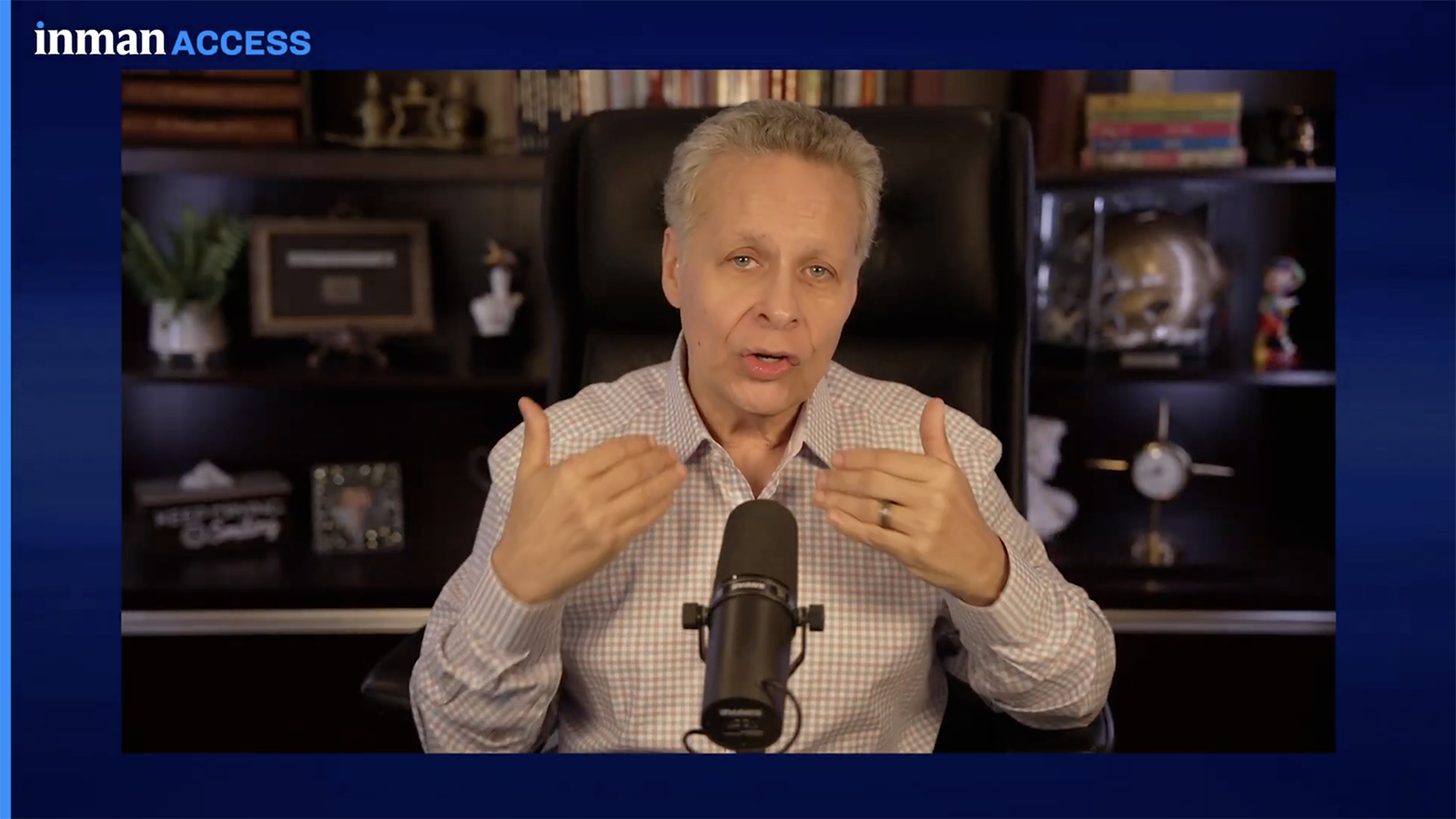
The year is only just beginning, but major hotel openings are already making noise. Kigali, Rwanda — the gateway to Volcanoes National Park’s gorilla treks — now has a nine-suite retreat positioning itself as one of East Africa’s most exclusive small-scale luxury stays. Rome, Italy welcomes one of its largest new rooftop hotels in years, while Cabo San Lucas gets a downtown alternative to its gated mega-resorts. Along the Belize Barrier Reef, a reef-front all-inclusive opens just offshore, and in Bali’s Nusa Dua, a new Meliá resort breaks from the buffet-and-bracelet formula with cultural programming and exclusive adults-only sections. Closer to home, Sundance unveils its first significant lodging expansion since the 1960s, placing guests directly at the base of the mountain, and Healdsburg, California now has four new gorgeous cottage stays in the heart of Sonoma wine country. Together, they offer an early look at the hotels already shaping travel in 2026.
We hope you love the hotels we recommend! Just so you know, Matador may collect a small commission from the links on this page if you decide to book a stay. Listed prices are accurate as of the time of publication.
New city hotels | Beachfront and coastal properties | New hotels near national parks and snow | Openings in wine country
New city hotels
Ayan Zalaat

Photo: Ayan Zalaat
- Location: Ulaanbaatar, Mongolia
- Why it’s notable: Set on a 34-acre private estate in the Zalaat Valley just outside Ulaanbaatar, Ayan Zalaat introduces a level of scale the Mongolian capital hasn’t seen before. The 32-room hotel sits near the Bogd Khan Uul UNESCO Biosphere Reserve and includes an on-site Soma Temple, where guests can meet with a resident Buddhist monk. Cultural programming is central, with a dedicated theater for traditional khöömii throat singing and Biyelgee dance. Beyond that, there are 10 restaurants and lounges, a marble-clad spa, and mountain-facing rooms finished with custom wool carpets and stonework.
- Type of traveler who will love this hotel: Travelers beginning or ending a Mongolia itinerary who want their capital stay to double as a cultural introduction before heading into the Gobi Desert or western steppe.
- What’s nearby: The hotel is a short drive from central Ulaanbaatar’s Sukhbaatar Square, the National Museum of Mongolia, and the Zanabazar Museum of Fine Arts. Bogd Khan Mountain rises just beyond the estate, offering hiking trails and panoramic views, and most overland journeys to the Gobi or domestic flights west depart from the capital.
Hyatt Regency Rome Central

Photo: Hyatt
- Location: Rome, Italy
- Why it’s notable: Hyatt Regency Rome Central debuts as one of Rome’s largest new luxury properties in years, with 238 rooms on Esquilino Hill just off Termini Station. It lays claim to what is expected to be the city’s largest hotel rooftop, with a pool and panoramic views stretching toward iconic landmarks rarely seen from this kind of elevated perch. Multiple restaurants, bars, and a full spa make it a stand-alone base for dining and downtime in a city where many visitors otherwise leave their hotel each night. Its combination of scale, centrality, and rooftop programming sets it apart from the boutique and heritage hotels clustered deeper in the historic center.
- Type of traveler who will love this hotel: Visitors to Rome seeking walkable access to ancient landmarks with a social hub to return to each day.
- What’s nearby: The Colosseum, Roman Forum, and the Monti neighborhood’s cafés and trattorias lie within easy walking distance, while the Spanish Steps and Villa Borghese are a short metro ride away. Termini Station offers direct train connections to Fiumicino and Ciampino airports, and buses stop outside for hop-on, hop-off sightseeing routes.
L’Aventure

Photo: L’Aventure
- Location: Paris, France
- Why it’s notable: L’Aventure brings together a restaurant, late-night club, and 15-room five-star hotel under one Art Deco–inspired roof just off the Arc de Triomphe. The project comes from the Costes family’s Beaumarly group, the force behind Café Marly at the Louvre and Hôtel Amour, and is designed to function as a full evening destination rather than simply a place to sleep. The restaurant serves continuously from noon to 11 PM with a French menu that incorporates dishes like steak tartare maki and paccheri with caviar, while the downstairs club hosts international electronic DJs and fashion-week after-parties.
- Type of traveler who will love this hotel: Well-heeled travelers booking Paris for restaurants, fashion, and late nights
- What’s nearby: You’re about a 10-minute walk from the Arc de Triomphe and the top of the Champs-Élysées, making it easy to wander toward the Seine or hop on the Metro at Charles de Gaulle–Étoile without much planning. From there, it’s a direct ride to the Louvre, Le Marais, or Saint-Germain. A taxi to most Right Bank restaurant neighborhoods typically takes 10 to 20 minutes, depending on traffic.
Pinnacle Kigali

Photo: Pinnacle Kigali
- Location: Kigali, Rwanda
- Why it’s notable: The Pinnacle is positioning itself at the very top of Rwanda’s hotel market. Butler service and VIP airport clearance come standard, alongside a saltwater infinity pool, rooftop restaurant, 21-seat Dolby Atmos cinema, bowling alley, spa, and a 1,000-bottle wine cellar — an unusually ambitious offering for a nine-room hotel. The most practical detail is its “Departure Amenity,” which allows guests returning from gorilla trekking to use the hotel’s spa, dining, and lounges before late-night international flights, eliminating the scramble for day-use space in the capital.
- Type of traveler who will love this hotel: Anyone planning to see Rwanda’s mountain gorillas but wanting a luxury hotel stay before or after.
- What’s nearby: Just over six miles from Kigali International Airport, the hotel sits within easy reach of the capital’s art galleries and fashion studios. For those continuing onward, it also serves as a convenient base for trips to Volcanoes National Park, home to gorilla trekking in the highlands.
ROOST Rainey

Photo: ROOST Rainey/Matthew Williams
- Location: Austin, Texas
- Why it’s notable: ROOST Rainey adds 59 apartment-style units to the Rainey Street District, ranging from studios to four-bedroom layouts. Each includes a kitchen, in-unit laundry, and a separate living space. Guests also have access to Paseo’s 12th-floor pool overlooking Lady Bird Lake; a fitness center with reformer Pilates and yoga studios; cold plunges and saunas; plus two floors of coworking space. It’s a residential-style setup in one of Austin’s busiest nightlife neighborhoods.
- Type of traveler who will love this hotel: People staying long enough to need a kitchen and a washer-dryer — or traveling with a group that wants more than one bedroom.
- What’s nearby: Rainey Street’s bungalow-turned-bars and restaurants are steps away, and Lady Bird Lake’s hike-and-bike trail is a couple of blocks west for morning runs or paddleboard rentals. Downtown’s convention center and music venues are within walking distance, making this a practical base during major events such as SXSW or Austin City Limits.
More like this
The Anthem

Photo: The Anthem Hotel
- Location: Los Angeles, California
- Why it’s notable: The Anthem is the first hotel to open directly within Inglewood’s Stadium District, putting you steps from SoFi Stadium, Intuit Dome, the Kia Forum, and YouTube Theater — close enough to skip rideshares entirely after a game or concert. Rather than functioning like an airport-adjacent chain stay, it positions itself as a pre- and post-event gathering spot, with an oversized pool and Soundwave Pool Bar drawing concertgoers and fans before and after major events. The rooftop, The Stage, hosts live performances and DJ sets tied to big weekends, while the main restaurant operates as a high-energy sports bar with wall-to-wall screens and a fast-casual menu.
- Type of traveler who will love this hotel: Anyone flying in for a game, tour stop, or major event who wants to walk back to their room afterward.
- What’s nearby: SoFi Stadium and the Kia Forum are next door, while Intuit Dome and YouTube Theater are a short walk away. LAX is about 10 minutes by car, and Manhattan Beach and the South Bay coastline are roughly 20 minutes west, depending on traffic.
New beachfront and coastal properties
Casa Yatí

Photo: Casa Yatí
- Location: Oaxaca, Mexico
- Why it’s notable: Casa Yatí introduces an eight-room beachfront stay to Playa Ventanilla, a sparsely developed stretch of Oaxaca’s Pacific coast about an hour from Puerto Escondido. The hotel sits steps from Laguna Ventanilla, a protected mangrove system known for guided boat tours spotting crocodiles, birdlife, and seasonal whale migrations offshore. Four of the seven King Suites include private balconies with hammocks facing the Pacific, and every room has direct ocean views — a rarity along this stretch of coast, where most lodging is set back from the sand. With rates starting at $180 per night, it offers beachfront access in an area that has largely avoided the large-scale resort development seen elsewhere in coastal Oaxaca.
- Type of traveler who will love this hotel: A repeat Mexico traveler who wants beachfront Oaxaca without the beach-club scene or resort sprawl.
- What’s nearby: Guided lagoon tours depart within walking distance, while Mazunte and Zipolite are about 20 minutes away for additional dining and surf breaks. Puerto Escondido International Airport — with direct US flights — is roughly an hour east by car.
Kadún

Photo: Kadún
- Location: Cabo San Lucas, Mexico
- Why it’s notable: In a part of Cabo better known for mega-resorts tucked behind gates, Kadún plants itself in the heart of downtown, steps from the marina and El Médano Beach. The 110-room hotel trades all-inclusive sprawl for walkability and local programming, with marine excursions departing directly from the harbor, artist studio visits in Todos Santos, and ranch outings focused on Baja’s food and tequila traditions. Interiors layer sculptural wood, woven textures, and regional artwork, while the rooftop pool overlooks the marina. Two restaurants, UMBRAL and SAVIA, spotlight Baja ingredients rather than resort-style buffet formulas, and several suites include terraces, kitchenettes, and outdoor hot tubs.
- Type of traveler who will love this hotel: Travelers who want to stay in central Cabo, close to the marina and swimmable beach.
- What’s nearby: The Cabo San Lucas Marina is a short walk away for whale-watching tours and fishing charters, and El Médano Beach — Cabo’s main swimmable stretch — sits just beyond. Water taxis connect to Lover’s Beach and the Arch at Land’s End, while galleries and restaurants fill the downtown grid around the hotel.
Mandarin Oriental, Desaru Coast

Photo: Mandarin Oriental
- Location: Johor, Malaysia
- Why it’s notable: Mandarin Oriental has taken over this 128-acre beachfront resort on Malaysia’s Desaru Coast, set between rainforest and nearly a mile of sand along the South China Sea. The property remains intentionally small at 44 suites and one four-bedroom villa, each with a private plunge pool and either jungle or ocean views. The setting — framed by towering banyan trees and dense tropical forest — gives it a sense of seclusion that’s hard to find this close to a major city. Dining ranges from a signature Malaysian-led restaurant to a beachfront club, and the spa incorporates local botanicals alongside the brand’s signature wellness treatments.
- Type of traveler who will love this hotel: Travelers routing through Singapore who want a beach-and-rainforest stay without committing to a far-flung island flight.
- What’s nearby: Desaru Coast sits about 90 minutes by car from Singapore’s Changi Airport via the Johor–Singapore Causeway, making it one of the easiest coastal add-ons to a Southeast Asia itinerary. The area is known for championship golf, small fishing villages serving fresh seafood, and protected rainforest with guided nature walks and wildlife spotting.
Paradisus by Meliá Bali

Photo: Paradisus by Meliá Bali
- Location: Nusa Dua, Bali
- Why it’s notable: Paradisus by Meliá Bali brings an all-inclusive format to Nusa Dua, with dining, activities, and select cultural outings folded into the nightly rate. The beachfront resort features multiple pools and eight restaurants spanning Indonesian, Japanese, Spanish, and Middle Eastern cuisines, along with distinct sections for adults-only stays and family travel. Private-pool villas sit apart from the main buildings, while the adults-only “Reserve” area offers its own beach and pool access. Cultural programming — including Balinese dance, lontar writing, and nearby theater performances — adds a thoughtful local touch.
- Type of traveler who will love this hotel: Families, multi-generational trips, and groups that prefer an all-inclusive format in Bali.
- What’s nearby: Located in Nusa Dua on Bali’s southern peninsula, the resort is about 20 to 25 minutes from Ngurah Rai International Airport. The Bali Nusa Dua Theatre and Bali Collection shopping complex are nearby, while Uluwatu’s sea cliffs and temples lie roughly 45 minutes south by car, depending on traffic.
Reef Haven Belize

Photo: Reef Haven Belize
- Location: Ambergris Caye, Belize
- Why it’s notable: Reef Haven Belize sits directly along the Belize Barrier Reef, placing one of the Caribbean’s most active snorkel and dive environments just offshore. The 55-suite all-inclusive resort is located just off Ambergris Caye and centers its experience on reef access and Belizean cultural programming, including Garifuna drumming sessions and cooking demonstrations. Two pools, multiple dining venues, and an on-site spa round out the stay, and boat transfers from San Pedro are included in the rate.
- Type of traveler who will love this hotel: Snorkelers and divers who want reef access built into an all-inclusive stay, or families looking for a Caribbean resort that isn’t centered on nightlife.
- What’s nearby: The resort sits along the reef just off Ambergris Caye, with San Pedro a short boat ride away for restaurants, beach bars, and tour operators. The Hol Chan Marine Reserve and Shark Ray Alley — two of Belize’s most visited snorkel sites — are accessible by guided excursion, and Belize City can be reached via a 15-minute domestic flight from San Pedro’s John Greif II Airport.
The Baby Grand

Photo: The Baby Grand
- Location: Coronado, California
- Why it’s notable: Coronado hasn’t seen a new independent boutique hotel in more than 20 years, and The Baby Grand arrives as a deliberate departure from the island’s traditional beach-resort formula. Interiors by Brooklyn’s Post Company reject coastal minimalism in favor of theatrical design — clamshell-shaped beds, surrealist murals, mirrored minibars, and stone-and-marble bathrooms with freestanding tubs. On-site restaurant Night Hawk focuses on open-fire Greek cooking, and Fallen Empire, a reservation-only champagne and raw bar, adds a level of showmanship to the dining scene that Coronado hasn’t traditionally offered.
- Type of traveler who will love this hotel: Someone who finds traditional beach resorts dull and would rather stay somewhere with personality.
- What’s nearby: The hotel sits just off Orange Avenue, about a five-minute walk from Coronado Beach and the historic Hotel del Coronado. The Coronado Ferry Landing, with boats to downtown San Diego’s Gaslamp Quarter, is a short bike ride away, and bayside parks, cafés, and boutiques line the village center within walking distance.
New hotels near national parks and snow
Larch House

Photo: Larch House
- Location: Whitefish, Montana
- Why it’s notable: In a town where many visitors default to cabins near the highway or lodges closer to the ski hill, Larch House puts you in the Railway District, a short walk from downtown Whitefish’s restaurants and river trail. The rooms feature warm wood, regional artwork, heated bathroom floors, and Pendleton quilts — a cleaner take on mountain design that still nods to Montana’s reference points. A heated rooftop pool looks out over town, and courtyard fire pits draw skiers and hikers. Enga, the on-site restaurant, works with Montana ranchers and growers, and the hotel can arrange fly-fishing guides in summer or get you sorted for first chair in winter.
- Type of traveler who will love this hotel: Glacier National Park visitors seeking a well-designed base in town.
- What’s nearby: Downtown Whitefish is a short walk away, with galleries, coffee shops, and the historic train depot. Glacier National Park’s west entrance is about 30 minutes by car, while Whitefish Mountain Resort lies roughly 15 minutes north for skiing and lift-served biking. Whitefish Lake sits just outside town for boating and paddleboarding.
The Inn at Sundance Mountain Resort
- Location: Sundance, Utah
- Why it’s notable: The Inn at Sundance Mountain Resort marks the first significant lodging expansion at the Robert Redford–founded resort since 1969. The 63-key ski-in/ski-out hotel sits at the base of the Outlaw Express lift, placing guests directly on the slopes rather than across the village. A footbridge over the North Fork Provo River connects the building’s two wings, with Mount Timpanogos rising beyond. Stone fireplaces, timber beams, and tartan accents nod to the resort’s early decades, while a dedicated ski valet and boot room introduce a level of convenience Sundance hasn’t offered before.
- Type of traveler who will love this hotel: Skiers who prefer Sundance’s smaller, less commercial feel over larger Utah resorts.
- What’s nearby: The Inn sits at the base of the mountain, steps from the lifts and close to longtime resort fixtures like the Owl Bar and the Tree Room. Salt Lake City International Airport is about an hour north by car, while Park City’s resorts are roughly 90 minutes away.
The Villas at Canyon Suites

Photo: The Villas at Canyon Suites
- Location: Scottsdale, Arizona
- Why it’s notable: At the base of Camelback Mountain, eight freestanding three- and four-bedroom villas sit apart from the main Phoenician resort, offering a more private alternative to a standard hotel room. Unlike most large vacation rentals in Scottsdale, these villas come with full resort access — including a dedicated ambassador, private golf cart, and entry to a secluded pool reserved for villa guests. Each residence includes indoor-outdoor living spaces, private hot tubs, and kitchens, offering the privacy of a standalone residence with the infrastructure of a five-star resort.
- Type of traveler who will love this hotel: Multi-generational families, golf groups, or those celebrating major occasions who want space without giving up resort amenities.
- What’s nearby: Camelback Mountain’s Echo Canyon and Cholla trailheads are a short drive away. Old Town Scottsdale is about 10 minutes away by car for galleries and restaurants, while Phoenix Sky Harbor International Airport is roughly 15 minutes west.
Openings in wine country
The Cottages at Little Saint

Photo: The Cottages at Little Saint/Brendan Mainini
- Location: Healdsburg, California
- Why it’s notable: The Cottages at Little Saint is a collection of four standalone guest cottages just off Healdsburg Plaza, directly behind Little Saint, the town’s plant-based restaurant and live music venue. Instead of standard wine-country farmhouse décor, the interiors are bold with patterned wallpaper, painted floors, brass fixtures, and record players stocked with vinyl. Some cottages connect for small-group stays, while others are designed for two. Guests share a heated pool and garden paths, and can walk to dinner, wine tastings, and evening shows without getting in a car — something many vineyard inns outside town can’t offer.
- Type of traveler who will love this hotel: Couples or small groups who want to stay in town, walk to restaurants and tasting rooms.
- What’s nearby: Healdsburg Plaza is a short walk away, with tasting rooms, restaurants, and boutiques clustered around the square. Wineries in Dry Creek Valley and the Russian River Valley are 10 to 20 minutes by car, and the Russian River is nearby for kayaking and summer swimming. Charles M. Schulz–Sonoma County Airport is about 15 minutes away, and San Francisco is roughly a 90-minute drive without traffic.




